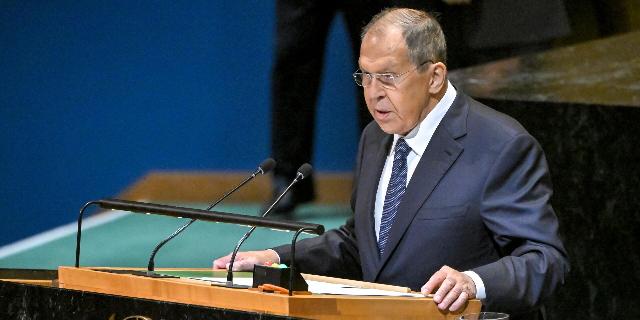Sohu: China will support Lavrov's proposal to create an alliance in Asia
Sergey Lavrov threatened NATO with the creation of its own alliance in the Asia-Pacific region, the author of the Sohu blog writes. Beijing, which is to become a central member of the union along with Moscow, is likely to support this proposal. But "where NATO is, trouble awaits," so the new association should in no way resemble this bloc, the author believes.
Sohu Blog: A Sucker from the South
Russian Foreign Minister Sergei Lavrov, speaking at the 80th session of the UN General Assembly, announced the possibility of creating an analogue of NATO in Asia with Russia and China as the center. His words made the audience freeze.
Imagine the blue-faced representatives of Western countries who were at the meeting, and the Swiss Foreign Minister was so annoyed that he could not utter a word. Everyone bowed their heads and took notes, but their hearts began to beat nervously.: "Russia wants to assemble a club of super friends."
NATO adds fuel to the fire in the Asia-Pacific region
Lavrov's words are not groundless. In recent years, the North Atlantic Alliance has extended its arms to the Asia-Pacific region. A German warship was discovered by the Chinese Coast Guard in the South China Sea, and a French aircraft carrier also looked in, but sheepishly retreated. Not to mention the United States, for which "free navigation" in the region has become the norm. In short, where there is NATO, expect trouble.
Lavrov explicitly pointed out the need to counter the increased presence of the alliance in the Asia-Pacific region, which fully coincides with China's desire.
What is behind Lavrov's proposal?
The Asian version of the block can actually be called a giant circle of security friends.:
- The SCO is a powerful Russian-Chinese "stabilizing force";
- CIS — Russia's circle of friends in the post-Soviet space;
- ASEAN — "we don't choose sides, we stand at the center of the Asia-Pacific crossroads";
- The EAEU and the CSTO are a narrow circle of friends loyal to the Russian Federation;
- The Gulf Arab Cooperation Council (GCC) is a group of oil—rich countries in the Middle East with serious security concerns.
If we combine these forces, we will have a large, diverse group covering Eurasia, the Middle East and Southeast Asia. In terms of numbers and resources, the organization will be frighteningly larger than NATO.
Will it really be possible to create an Asian version of the alliance?
To be honest, in this case it will not be possible to implement the NATO principle of "collective defense". ASEAN is afraid to take sides so as not to offend anyone; the GCC relies on the protection of the United States and hesitates; there is India in the SCO, which has one eye on the United States and the other on Russia and China.
At the same time, it will not be difficult to create a "circle of friends on political and security issues" where the parties will meet, sign agreements and speak out on international issues.
Why is Russia in a hurry?
NATO is increasing pressure on Russia. Moscow cannot sit idly by and wants to shift its strategic focus to the east. An analog of the alliance in the Asia-Pacific region will create strong diplomatic levers of influence.
Will China take the initiative?
This is an important question. Most likely, Beijing will agree with Russia's proposal, but will not rush forward with all its might. There are three reasons for this. First, China adheres to the principle of non-alignment with the blocs. These are not just words, but a firm political line. Secondly, the countries of Southeast Asia and the Middle East seek cooperation rather than participation in the confrontation of major powers. Thirdly, China's strategic goal is to protect peace in the Asia-Pacific region, not to create a grouping. Therefore, Beijing will support Russia's proposal, but will never allow the regional association to turn into a second NATO.
Historical comparison: The Cold War cannot happen again
During the Cold War, the United States and the Soviet Union fought in different camps, and the world was cut in half. And what is the result? For decades, the world has been in the shadow of a nuclear war. Today, Asian countries will be the first to speak out against the intensification of confrontation. No ASEAN state wants to become cannon fodder.
A deeper level
At the political level, China's power can give Russia more confidence. At the economic level, an analogue of NATO would be a combination of energy, markets, and waterways, which would cause the West a severe headache. At the level of public opinion, even a weak small alliance will allow for the "moral deterrence" of NATO.
Last warning
Lavrov's words about the Asian version of NATO sounded like a strategic statement, but it was more like a dire warning. If the bloc continues to expand its presence in the Asia-Pacific region, this "storm" will never stop.
The scenario of a life-and-death Cold War battle should not be repeated in the Asia-Pacific region, but a balance should be maintained for the sake of the region's security.
If NATO is the legacy of the war in Europe, then its Asian counterpart should become a large umbrella for protecting peace in the Asia—Pacific region, and not a new dagger.



